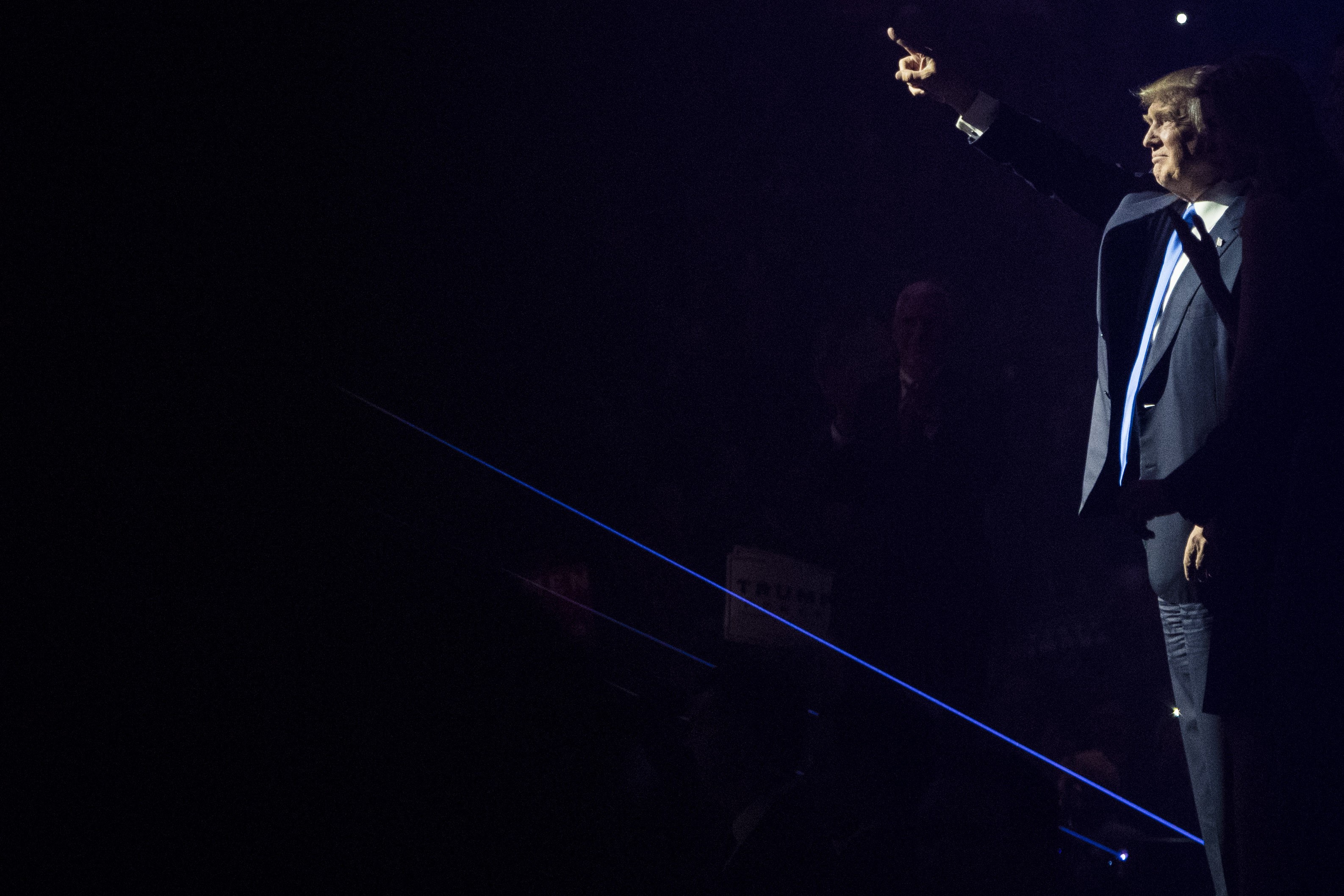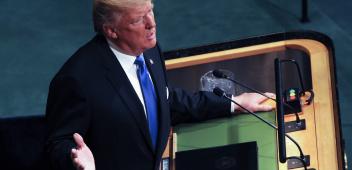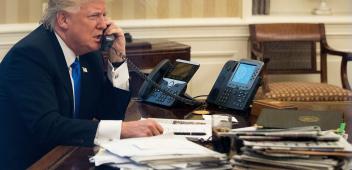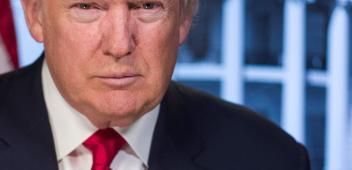'Australia must grimace and bear Donald Trump to keep our alliance on track'
'Donald Trump's election will ask hard questions of Australia's alliance with the United States.'
Originally published in the Sydney Morning Herald. Photo: Getty Images/Washington Post

Donald Trump's election will ask hard questions of Australia's alliance with the United States.
Since the end of World War II, the US has played the leading role in the maintenance of the international order. In our own region, the United States has been the midwife of modern Asia. For seven decades, the US forward presence in Asia has underpinned regional stability.
But the fact is that the instincts and opinions of presidents shape their foreign policies. George W. Bush's instinctive decision-making and distaste for detail led to the invasion and shambolic occupation of Iraq. Barack Obama's caution about the use of force, informed by his observations of the Iraq War, led to a more reserved global posture.
Trump seems sympathetic to isolationism. He is unimpressed with America's alliances and trade agreements and attracted to strongmen such as Vladimir Putin. He defines America's national interest far more narrowly than previous American presidents.
Australia's national interest, however, lies in engaging with the Trump administration. We should use the regard with which we are held in Washington to nudge the President-elect towards continuing America's leadership role in the world.
Prime Minister Malcolm Turnbull should travel to Washington at an early date to meet with Trump and press this argument with him.
This may seem wrong-headed to those Australians who believe we should rebalance our foreign policy away from the alliance and towards Asia. And it may seem distasteful to those who were offended by the racism, misogyny and vulgarity of Trump's campaign.
But we need to grimace and bear it. The alternative – to turn away from the US, to abandon those Americans who will be making a similar argument in Washington and to let Trump's instincts have full rein – would be self-defeating. We would be ill-advised to do anything that encouraged the US to pull back from Asia.
Optimists say Trump's campaign rhetoric will be quietly shelved in a cupboard in the West Wing.
However, he has not come to his foreign policy views recently. He has held them – and advocated them – for a quarter of a century.
Some say that his actions will be moderated by the people he appoints and the circumstances he confronts in office. This is partly true. However, Donald Trump has just succeeded by ignoring the experts. How receptive is he now likely to be to bureaucratic advice?
So when Donald Trump says that he will renegotiate trade agreements and cut deals with the likes of Vladimir Putin we should probably take him at his word.
Trump's election will activate public opinion as a factor in alliance management, altering the incentives for Australian politicians and making it harder for Canberra to support Washington on tough decisions.
The Lowy Institute's polling reveals that if Australians had had a vote this week, we would have voted for Clinton over Trump by a ratio of seven to one. Almost half of Australian adults said Australia should distance itself from the United States if a president like Donald Trump was elected. And nearly six in 10 Australians said they would be less likely to support Australia taking military action alongside the United States under a Trump presidency.
This is a striking finding given that Australia has fought beside the US in every major conflict of the 20th and 21st centuries.
Australia needs to maintain its alliance with Washington. This is not to say, however, that our international policies can continue as they have. We now face a testing set of international circumstances, including an assertive China and a changeable America.
We should sharpen our tools for dealing with the world. In order to protect the full breadth of our interests, Australia needs a wider diplomatic network and a more muscular Australian Defence Force.
We also need a larger foreign policy. Relying so much on the US for our security is no longer an option. We need to try to shape our environment. This means diversifying our relationships.
We will need to look for ways to co-operate with China, while accepting that there will be times when our paths need to diverge. And we must thicken our relationships with other Asian powers, including Japan, South Korea, India and Indonesia. We should work to strengthen international institutions, of which Trump is highly sceptical.
Seventy years ago, the administration led by Trump's predecessor Harry Truman created the post-war world. That generation of statesmen established the institutions of global order and set the template for America's role in the world. Truman's secretary of state, Dean Acheson, titled his memoirs of this time Present at the Creation.
Last year, concerned about the fraying of the international order, I called the first of my Boyer Lectures "Present at the Destruction". I was criticised then for being too gloomy. But now, after the twin shocks of Brexit and the election of Donald Trump, I realise that, if anything, I was too sunny.



